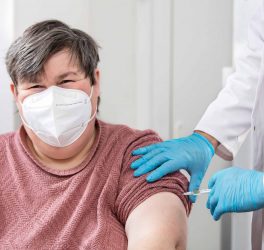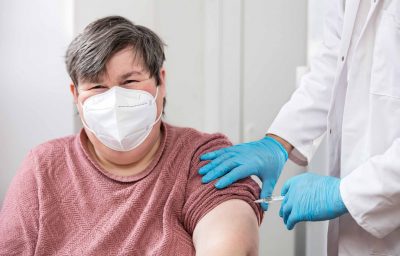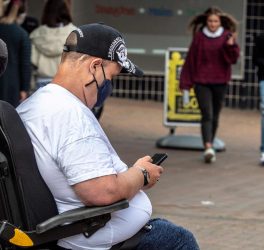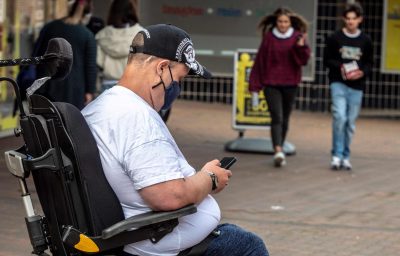Noé Socha, 29 years old from Italy, is a musician in New York City where he earns a living playing guitar and harmonica in clubs.
Not unlike musicians nationwide, the coronavirus pandemic threw a wrench in his career. “When the pandemic started, I went from working six nights a week to nothing,” he said.
Socha’s experience is a bit different due to his visual disability – having lost his vision as a premature baby when he was given too much oxygen in the incubator.
His disability has made the pandemic especially isolating for Socha.
“I don’t really feel comfortable going out on my own with this situation,” he said. “I saw three people in four months.”
Pre-pandemic, Socha relied on public transportation to get to his jobs. He had no qualms about approaching strangers for help.
But now in the world of physical distancing, the risks of travel outbalance the benefits for Socha.
“I certainly don’t want to put people in a position where they have to help me,” he said. “I know that I can’t avoid being close to people, but I also don’t want to force somebody to do that with me.”
Socha feels that the public doesn’t grasp just how isolating and depressing the pandemic has been for people with disabilities.
“I can’t see, so it’s not the worst thing that somebody could have. People have situations where they probably are not even able to move around independently,” he said. “I feel like it’s just kind of been left on the back burner.”
The Access-A-Ride Paratransit Service, he says, is inconvenient and unreliable, often picking up and dropping off passengers at their locations either hours early or late.
“It is available, and I’m grateful that it exists, but we call it ‘Stress-A-Ride’ for a reason,” he said.
Socha’s wish is that the government could provide a support person he could call for assistance.
“Even if you just want to go for a leisure walk. I love walking, so that would be really nice,” he said.
Although he understands the importance of vigilance as the pandemic goes on, Socha hopes for more understanding from the public.
“[People are] getting all bent out of shape if somebody comes close to them and posting about it on social media, and that kind of makes me a little fearful,” he said.
“I just think that for this to be exposed is important, so people have a little bit more flexibility and understanding.”






